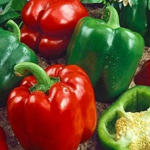FREE: 3 Ball Moss "Air Plant" SEEDS PODS 'Tillandsia Recurvata'

A member of Listia gave this away for free!
Do you want FREE stuff like this?
Listia is 100% Free to use
Over 100,000 items are FREE on Listia
Declutter your home & save money

"Listia is like EBay, except everything is free" - Los Angeles Times

"An Awesome Way To Give And Get Free Stuff" - Michael Arrington, TechCrunch
This Stuff is Free Too:

FREE

FREE

FREE

FREE

FREE
The listing, 3 Ball Moss "Air Plant" SEEDS PODS 'Tillandsia Recurvata' has ended.
3 Ball Moss "Air Plant" SEEDS PODS 'Tillandsia Recurvata'Each pod contains about 10-25 seeds.
Like almost all members of the Bromeliaceae, Spanish moss and Ball moss are perennial herbs. This means they do not have permanent woody stems above ground, but that individual plants persist for years and will reproduce without human intervention. Like many other bromeliads, these plants are epiphytes or "air plants". This indicates that they do not require soil to root in, but can survive and thrive growing above the ground hanging on branches of trees or other structures. They are not parasites. Without soil as a source of nutrients, these plants have evolved the capacity to make use of minerals dissolved in the water which flows across leaves and down branches.
Ball moss can be found from the southern US to central Argentina.
While both species will grow on wires, fences and other non-living structures, they are particularly well- adapted to growth on trees.
Ball Moss exhibits a highly compact growth form. Ball moss flowers are a blue-to-violet. They appear in spring on a long stem emerging from the central mass of the "ball" of leaves. Examination of "balls" which have fallen to the ground will often provide an opportunity to see the seed capsule, which will open in dec-jan.
Seeds are wind-dispersed. The structure of ball moss is a compact mass of stiff leaves arising from a central core.
Medicinal
Ball Moss has shown significant anti-tumor and HIV/AIDS applications in vitro as well as in animal studies. Dr. Henry Lowe of Jamaica has applied for a US patent for a Ball Moss extract which induces tumorous cell death by apoptosis.
3 Ball Moss "Air Plant" SEEDS PODS 'Tillandsia Recurvata' is in the Home & Garden | Gardening | Gardening Seeds & Bulbs category

